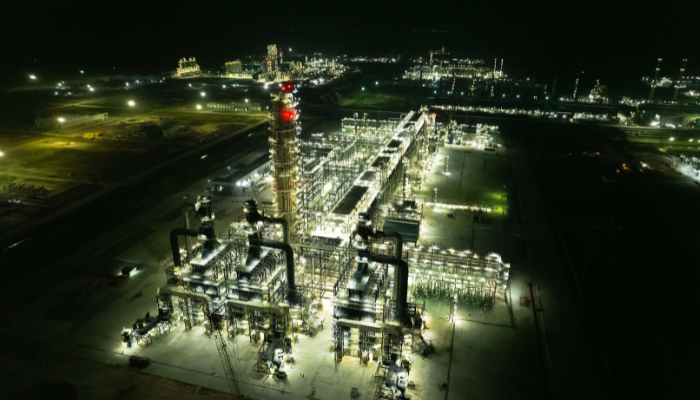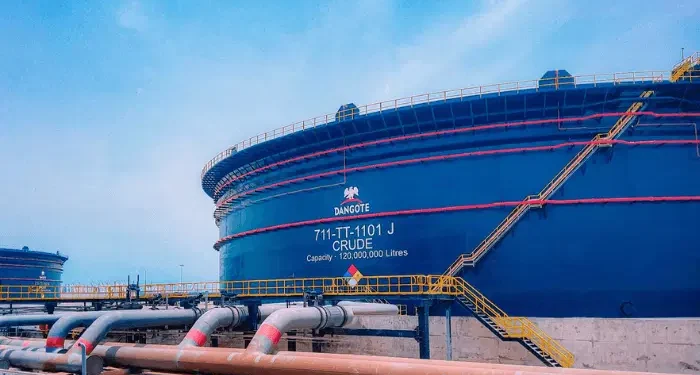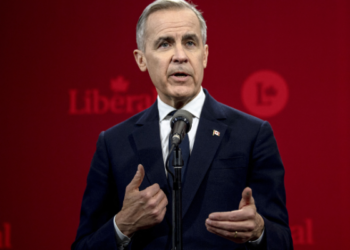When a man dreams beyond the ordinary, it changes the story of a nation, that’s what is happening as the Dangote Refinery set to dethrone India’s Jamnagar, showing the world that Africa is not just a consumer but a producer of excellence. The refinery, already the pride of Nigeria, is now expanding from 650,000 barrels per day to an unbelievable 1.4 million barrels. That’s not just progress, it’s a global statement that the balance of power in oil refining is shifting.
Nigeria’s Confidence on Display
At a press conference in Lagos, Aliko Dangote made it clear that this expansion isn’t just about numbers, it’s about confidence. He said the refinery’s growth aligns with President Bola Tinubu’s vision of a Nigeria that doesn’t depend on imported fuel. In his words, the project shows “confidence in Nigeria, in Africa, and in our capacity to shape our own energy future.” The Dangote Refinery set to dethrone India’s Jamnagar is not just an industrial upgrade, it’s a message that Nigeria believes in its potential.

A Major Shift in the Global Oil Map
For decades, India’s Jamnagar Refinery has dominated the global refining scene. But this move changes everything. When completed, Dangote’s massive expansion will push the limits of production, making it the largest single-train refinery in the world. That means Nigeria will no longer sit at the back of the queue when it comes to refined fuel exports. Instead, the Dangote Refinery set to dethrone India’s Jamnagar will place the country at the very top of global energy charts.
Policies Driving Progress
Dangote didn’t forget to give credit where it’s due. He praised the government’s policies, like the Nigeria’s First Policy, Naira-for-Crude, and the One-Stop Shop Initiative, for creating an enabling environment. These policies have simplified processes, encouraged local participation, and reduced dependence on imported petroleum products. It’s one of those rare cases where government and private industry actually worked hand-in-hand.
Overcoming Challenges
The refinery hasn’t been without its problems. There were reports of union disturbances and even sabotage attempts. But Dangote revealed that with government intervention and cooperation, those hurdles have been cleared. That’s what makes this project so inspiring, it’s a story of resilience. Every challenge has only strengthened the refinery’s determination to finish strong.
Jobs and Growth
The expansion is not only about oil, it’s about people. Dangote said the project would create around 65,000 jobs during construction alone, and many more when operations scale up. That’s a lot of lives transformed, a lot of families empowered. Beyond refining crude, the facility will now boost polypropylene production from 900,000 metric tonnes to 2.4 million per year. It will also produce base oils and linear alkylbenzene, used in making detergents, proof that the refinery isn’t just refining oil, it’s refining opportunities.
Another standout feature of the Dangote Refinery set to dethrone India’s Jamnagar is its commitment to clean energy. The upgraded plant will produce Euro VI-standard fuels, which meet the highest international environmental standards. It’s a silent message to the world that industrial progress and environmental responsibility can go hand in hand.
No More Fuel Anxiety
Nigerians know too well the stress of long queues and panic buying during festive periods. Dangote’s assurance that there will be no fuel shortage this season comes as a huge relief. “For the first time in many years, Nigerians can look forward to a festive season free of fuel anxiety,” he said. It’s more than a promise, it’s a sign of hope.
The refinery’s journey has been nothing short of remarkable. Inaugurated in May 2023 by former President Muhammadu Buhari, it began operations in early 2024 after receiving its first crude supply. Since then, it has gradually changed the oil landscape, cutting down import dependency and boosting local supply. The Dangote Refinery set to dethrone India’s Jamnagar now stands as proof that with vision, courage, and consistency, Africa can compete with anyone.

















